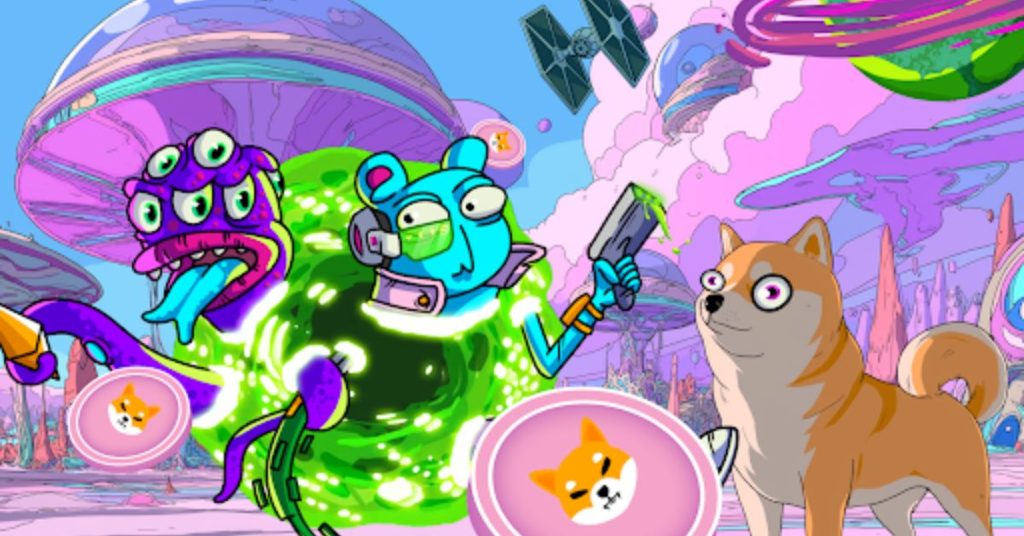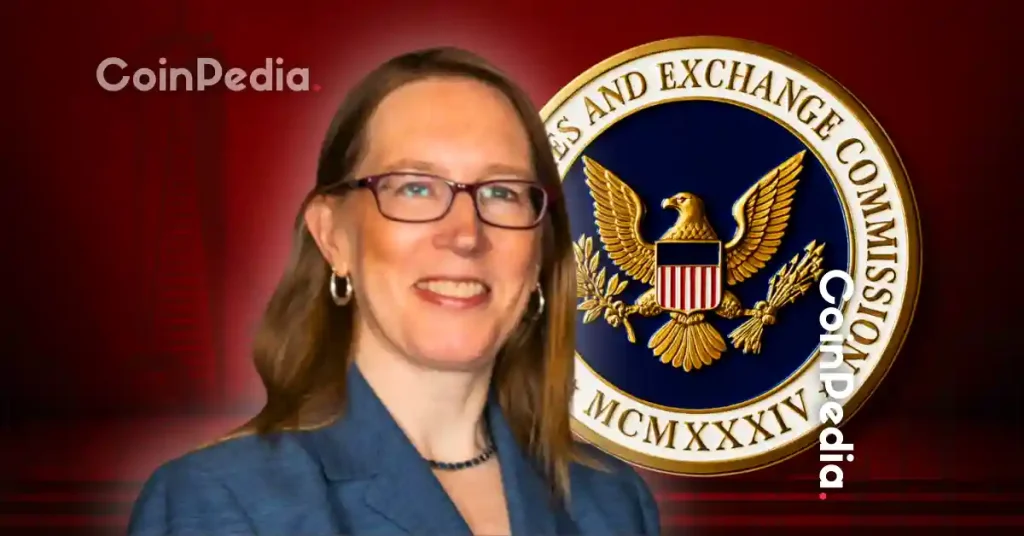
Although it is full of noise and anger, there is a story related to crypto assets (virtual currency) that may actually have a happy ending. Popular crypto asset media “Bankless'' and its affiliated organization “BanklessDAO'' are discussing divorce. And the cause of divorce is DAO.
But the breakup is unlikely to be bitter. Influential Bankless co-founders David Hoffman and Ryan Sean Adams submitted a proposal to Bankless DAO. For now they just want to talk.
“Right now we're in the parameterization stage,” Hoffman said in an interview. The professional podcaster's online interviews were crystal clear, befitting someone who invests time, attention, and capital into the two to four news stories and interviews they upload each week.
DAO's proposed fundraising and education initiatives, unbeknownst to Hoffman and Adams, sparked heated debate across the brand. Will Bankless DAO continue to use the name “Bankless”?
Backlash from the crypto community
Specifically, a large portion of Crypto Twitter (i.e., a portion of Bitcoin Twitter) will be used by Bankless DAO to fund a one-year educational effort to onboard people to the Arbitrum network. , expressed serious displeasure over Arbitrum's request for a grant of 1,818,630 Arbitrum (ARB). Since the crypto asset Arbitrum is traded at almost $1, the requested amount is equivalent to $1.8 million (approximately 270 million yen, converted at 150 yen to the dollar).
“This caused a knee-jerk reaction from crypto Twitter, where people felt it was a DAO extortion of funds,” Hoffman said. Hoffman said this has happened five times in the past two years.
“It seems like there's going to be something that happens where someone gets mad at us about something and says, 'It's time to air our frustrations about bankless.'”
The proposal, if passed by the DAO, would fund a “multilingual marketing campaign,” content writing, 22 podcasts, 50 events, 85 “how-to” training sessions, and support Arbitrum's core technology and its tools/ It aims to introduce the protocol to a new audience.
Whether or not it constitutes “financial theft” is a question on which even reasonable people cannot agree, and the Arbitrum DAO will decide through a vote. Bankless DAO has done similar work in the past, perhaps most relevantly for rival Ethereum Layer 2, Optimism. Mr. Hoffman also claimed to have no knowledge of most of these efforts.
“I have asked for information and have not received any.”
Hoffman says the recent rebound is the result of a combination of factors. First, X (formerly Twitter) is a “warped mirror'' and a “content platform unsuited for dialogue.'' Second, Arbitrum paid approximately $500,000 to advertise in Bankless' media outlets. As a result, DAO's request for funding in a separate framework looks like an extortion of funds.
failed to draw the line
Most importantly, this is a problem that should be familiar to anyone who has spent any time or observed DAOs. It is often a “failure to differentiate” between different organizations that have the same name and founder but exist for different purposes.
Bankless, for example, is a well-established media covering the niche DeFi sector. The company, which has about 20 employees, including full-time contractors, was started by Mr. Hoffman and Mr. Adams.
There is a media team that produces podcasts and newsletters, a business team that manages things like relationships with advertisers, and a software division that is gaining ground.
Hoffman and Adams also run a separate entity that has raised $35 million, but Bankless LLC was incorporated in 2020 and has been their full-time commitment since. , has not received any external funding.
On the other hand, a bankless DAO is an organization that, legally speaking, does not even exist. DAO was founded in 2021 during the bull market when Bitcoin hit $69,000. Discord has about 30,000 members, but how many have joined? , it is difficult to determine how many people have left.
Hoffman described Bankless DAO as a “very flat” organization made up of “sub-DAOs,” including units focused on consulting and publishing, an audio and video guild, and something called a “fight club.” explained.
“They all come together and integrate into the DAO,” Hoffman said. At one point, Mr. Hoffman and Mr. Adams gave two Bankless staff members a new role: “DAO coordinator.'' They could have held the title of CEO, if that word had any meaning in the DAO world.
DAOs are an idea unique to cryptocurrencies, and the New York Times once described them as “a group chat with bank accounts.”
Some DAOs, like MakerDAO and Maker, oversee financial operations, but they are usually just social groups with Discord channels and tokens that limit access to the group and serve as seed funding. do not have. And like most crypto-specific ideas, it has its problems.
What is the responsibility of bankless?
Bankless' founders, who initially went on the defensive and dodged responsibility for DAO's actions, are now attempting damage control on X and Bankless' Discord channels. “There are some face-to-face meetings,” Hoffman said.
One of the main complaints about bankless DAOs is that Hoffman and Adams are “sitting on the sidelines.” This is a valid claim.
The co-founders of Bankless launched the DAO, promoted it across many of their own distribution channels, and at one point held as much as 25% of BANK, a cryptocurrency used to vote on governance decisions (they sold the tokens However, the company says it currently owns less than 15% in total after distributing some to the “DAO founding team”).
Bankless also transferred a profitable on-chain investment protocol called Index Coop and a blockchain-related apparel division to Bankless DAO upon its launch in 2021.
Bankless' involvement in DAO has been fluid in the past, but DAO members have no voting rights in Bankless, and “there are no current Bankless employees from DAO,” Hoffman said. .
It's fair to argue that someone, say the founders of Bankless, should have been more involved in running the DAO. An amorphous social club was licensing Bankless' valuable trademarks for free, making decisions that could seriously impact the interests of real businesses.
Hoffman recognizes that was a mistake and seems convinced that the solution is to separate the organization. On November 25, 2023, Mr. Adams tweeted that he plans to “submit a governance proposal to @BanklessDAO early next week to clarify brand separation between organizations” and burn BANK. No formal proposals have been made, and a variety of outcomes are possible.
For founders of crypto startups, there is a lesson here about the dangers of ceding control of parts of your business or reputation to an outside entity. There are also lessons about DAOs and the importance of leadership. Personally, I think Bankless DAO's Arbitrum education proposal is reasonable. The requested budget is in line with both the DAO's compensation and marketing efforts, but the message is likely to be larger.
The idea of decentralization
But for Hoffman, bankless is also an “idea.” From the beginning, the co-founders wanted to keep Bankless a “lean” company with a clear audience, but Hoffman and Adams are also true believers in crypto assets, and are looking to run media operations. I was captivated by the idea of ”decentralization.”
“Many people sent us DMs and offered their services and backgrounds in related fields, wanting to help Bankless. There was no place for them in a centralized company.” says Hoffman.
When their podcast was starting to take off, DAO was a sophisticated topic. For example, a New York Times reporter was part of a DAO that sought to purchase the original copy of the U.S. Constitution (although they raised a lot of money, the purchase was unsuccessful). DAOs seemed like a way for Bankless to grow without actually becoming huge.
And to a large extent, that's true. Bankless, a media company run by two founders with no journalism background, is one of the most successful organizations in the field. Cryptocurrency media outlets are cutting back on budgets and staff, and Bankless is eyeing its next opportunity even as its readership has significantly decreased.
Regarding bankless, there are complaints about potential conflicts of interest, excessive positivity bias, and reliance on Web2 business models such as advertising. On the other hand, there is no doubt that the company's management is one that people envy.
Mr. Hoffman and Mr. Adams spend their time reading, writing, and communicating what they love, and they profit from it. Bankless is where I go when I want to understand the intricacies of crypto assets, and where I often recommend it to people looking to dip their toe into something new with Ethereum.
Similarly, Bankless DAO has grown by leveraging the Bankless brand and is now a force to be reckoned with by its creators. It's one of the few DAOs worth joining, and seemed relatively stable before the problems surfaced. As Mr. Hoffman put it, “a brand without a leader,” but he may not even have the right to say such a thing.
Problems with crypto assets and the internet
Bankless is not a bad actor or “evil to Ethereum,” as some disgruntled people claim, but the current crypto assets themselves are not the problem. As long as it's there. The movement and mission of bankless and DAO, the idea of being bankless, may be a terrible idea, at least in light of currently available alternatives. But it's still great branding.
But aside from the problem that bankless represents with Web3, this disruption is also the problem with the internet that cryptocurrencies hope to replace. Anyone can write on social media. So everyone thinks what Mr. Hoffman and Mr. Adams have built can be replicated. But that's not the case; it takes work, dedication, and some luck.
X's algorithms may intensify the debate, but you still have the ability to choose how you communicate.
|Translation and editing: Akiko Yamaguchi, Takayuki Masuda
|Image: Bankless co-founder David Hoffman (CoinDesk)
|Original text: Breaking Down the Bankless Backlash
The post Conflict between popular media outlets Bankless and DAO – Looking back at the causes and developments | CoinDesk JAPAN appeared first on Our Bitcoin News.

 1 year ago
118
1 year ago
118














 English (US) ·
English (US) ·